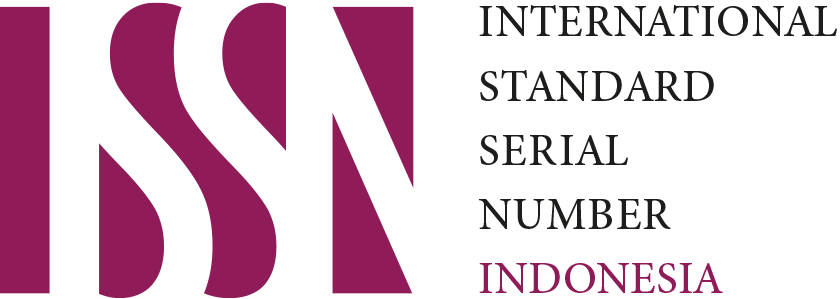EFL Cambridge Curriculum Implementation at Kharisma Bangsa Middle School: Teachers' Perspective
Abstract
This study investigates the implementation of the Cambridge Curriculum at Kharisma Bangsa Secondary School and its impact on teaching English as a Foreign Language (EFL). Data were collected using a qualitative case study approach, which included interviews, observations, and document analysis. Miles, Huberman, and Saldana's models were used in the analysis, with emphasis on the systematic phases of data collection, condensation, analysis, and aggregation. The purpose of this study is to assess the effectiveness of the Cambridge Curriculum in meeting learning objectives and improving the quality of EFL education. It investigates a variety of topics, including curriculum implementation strategies, supporting and challenging factors encountered, and the curriculum's overall outcomes in the Indonesian educational context. The primary results indicate that the Cambridge Curriculum has significantly influenced the teaching methodologies and assessments.
Keywords
Full Text:
PDFReferences
Anindya, R., & Pamungkas, H. P. (2023). Analysis of Cambridge Curriculum Implementation in Character Education Aspects in Economic Learning (Case Study at Singapore Intercultural School Semarang). International Journal of Emerging Research and Review, 1(2), 000012-000012. http://ijoerar.net/index.php/ijoerar/article/view/12
Caggiano, H., & Weber, E. U. (2023). Advances in qualitative methods in environmental research. Annual Review of Environment and Resources, 48(1), 793-811. https://doi.org/10.1146/annurev-environ-112321-080106
Cambridge, J. (2010). International curriculum. In Schooling Internationally (pp. 131-157). Routledge.
Golding, D., & Kopsick, K. (2024). The colonial governmentality of Cambridge Assessment International Education. European Educational Research Journal, 23(2), 261–286. https://doi.org/10.1177/14749041221125027
Höl, D. (2023). Standardized testing in Turkey: EFL teachers’ perceptions and experiences on Cambridge Young Learner Exams (YLE). International Journal of Curriculum and Instruction, 15(2), 984–1007. https://orcid.org/0000-0001-5151-2581
Liguori, E., & Winkler, C. (2020). From Offline to Online: Challenges and Opportunities for Entrepreneurship Education Following the COVID-19 Pandemic. Entrepreneurship Education and Pedagogy,3(4), 346–351. https://doi.org/10.1177/2515127420916738
Jameson, E., McClure, L., & Gould, T. (2018). Shared perspectives on research in curriculum reform: Designing the Cambridge mathematics framework. In School mathematics curriculum reforms: Challenges, changes and opportunities. Proceedings of the twenty-fourth ICM1 Study conference (pp. 531-538). International Commission on Mathematical Instruction.
Jawabreh, R., & Gunduz, N. (2021). Content Analysis of Curriculum Development Related Studies During 2000 – 2019. Near East University Online Journal of Education, 4(2), 12–21. https://doi.org/10.32955/neuje.v4i2.429
Kemendikbud RI. (2023). Merdeka Curriculum Policy: A framework for educational improvement in Indonesia. Ministry of Education, Culture, Research, and Technology.
Meke, K. D. P., Astro, R. B., & Daud, M. H. (2021). Dampak Kebijakan Merdeka Belajar Kampus Merdeka (MBKM) pada Perguruan Tinggi Swasta di Indonesia. Edukatif: Jurnal Ilmu Pendidikan, 4(1), 675– 685. https://doi.org/10.31004/edukatif.v4i1.1940
Miles, M. B., Huberman M., & Saldana J. (2014) Qualitative Data Analysis: A Methods Sourcebook. 3rd Edition. California, Sage Publication Inc.
Morse, J. M. (2022). The fallacy of rigor: Examining checklist criteria as an indicator of quality. The SAGE handbook of qualitative research design, 1, 373-396. Retrieved from http://digital.casalini.it/9781529766943
Nazizah, M., Lisan, K. H., & Arta, B. (2024). Analyzing the Impacts of Implementing Cambridge Curriculum on Students’ English Academic Achievement. JETLEE: Journal of English Language Teaching, Linguistics, and Literature, 4(2), 224-239. Retrieved from https://journal.iainlhokseumawe.ac.id/index.php/jetlee/article/view/2898
Pieters, J., Voogt, J., & Roblin, N. P. (2019). Collaborative curriculum design for sustainable innovation and teacher learning. In Collaborative Curriculum Design for Sustainable Innovation and Teacher Learning. https://doi.org/10.1007/978-3-030-20062-6
Qomariyah, D. N., & Khasanah, N. (2023). The application of Cambridge Curriculum in English as second language teaching learning at secondary school. Journal of Language Intelligence and Culture, 5(1), 1-8. Retrieved from https://jlic.uinkhas.ac.id/index.php/jlic/article/download/115/58
Shobikah, N., Syafri, M., Sofia, I., Mahsus, M., Rahmawati, F., Maisaroh, U., & Yuni, P. N. (2024). The Implementation of Cambridge Curriculum in the Excellent Class of MTsN 3 Jombang. Edulingua: Jurnal Linguistiks Terapan dan Pendidikan Bahasa Inggris, 11(1), 12-32. https://doi.org/10.34001/edulingua.v11i1.5718
Simanjuntak, M. B. (2020). The effects of integration between kurikulum 2013 and cambridge curriculum in English (Study case taken from saint peter's junior high school). Journal Of Advanced English Studies, 3(1), 50-59.
Simanjuntak, M. B., Suseno, M., Setiadi, S., Lustyantie, N., & Barus, I. R. G. R. G. (2022). Integration of curricula (curriculum 2013 and cambridge curriculum for junior high school level in three subjects) in pandemic situation. Ideas: Jurnal Pendidikan, Sosial, dan Budaya, 8(1), 77-86.
Syomwene, A. (2020). Curriculum theory: characteristics and functions. European Journal of Education Studies, 7(1), 326–336. https://doi.org/10.5281/zenodo.3718433
Trimadona, E., Andriani, R., & Ferdi, S. D. (2020). The Student Difficulties in The Implementation of Cambridge Curriculum at Al-Azhar Junior High School. JR-ELT (Journal of Research in English Language Teaching), 4(2), 91-99.
Vreuls, J., Koeslag-Kreunen, M., van der Klink, M., Nieuwenhuis, L., & Boshuizen, H. (2022). Responsive curriculum development for professional education: Different teams, different tales. Curriculum Journal, 33(4), 636–659. https://doi.org/10.1002/curj.155
Yaşar, G. C ., & Aslan, B. (2021). Curriculum theory: A review study. International Journal of Curriculum and Instructional Studies (IJOCIS), 11(2), 237-260. https://doi.org/10.31704/ijocis.2021.012
Yudha, U. A. (2016). The implementation of Cambridge curriculum: Case study the implementation of Cambridge curriculum in SD Laboratorium Universitas Negeri Malang (Doctoral dissertation, Universitas Islam Negeri Maulana Malik Ibrahim). Retrieved from http://etheses.uin-malang.ac.id/id/eprint/4068
DOI: https://doi.org/10.24853/elif.7.1.31-40
Refbacks
- There are currently no refbacks.
Abstracting/Indexing |
 |  |  |  |  |
 |  |  |  |  |
 |  |  |  |  |
 |  | |||
English Language in Focus (ELIF) is published by This work is licensed under
|






9.png)
2.png)






